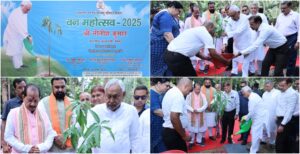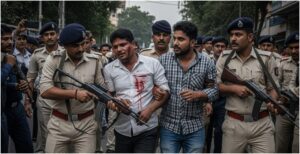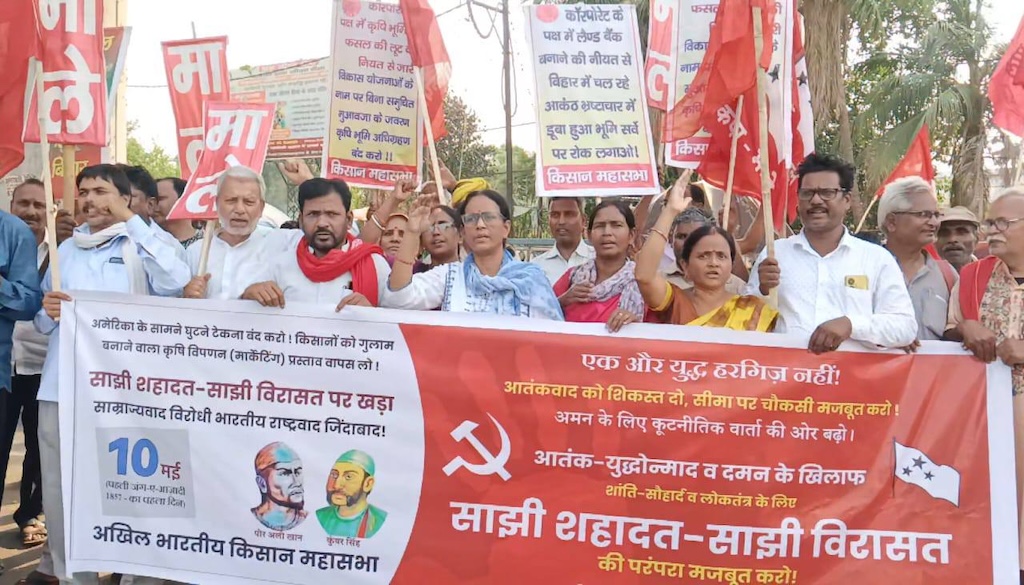
Patna: The CPI-ML and All India Kisan Mahasabha jointly organized marches across Bihar on Saturday, marking the anniversary of the 1857 uprising, India’s first war of independence. The rallies focused on advocating for peace, harmony, and justice, while opposing terror, warmongering, and oppression.
Key cities including Patna, Ara, Paliganj, Masaurhi, Gaya, Nawada, Buxar, and Banka witnessed spirited marches, as participants commemorated the sacrifices of India’s freedom fighters. In Patna, the rally commenced at GPO Golambar, culminating in a meeting near Buddha Smriti Park. The gathering saw prominent leaders such as AIPWA General Secretary Meena Tiwari, MLA Gopal Ravidas, and Kisan Mahasabha State Secretary Umesh Singh address the crowd.
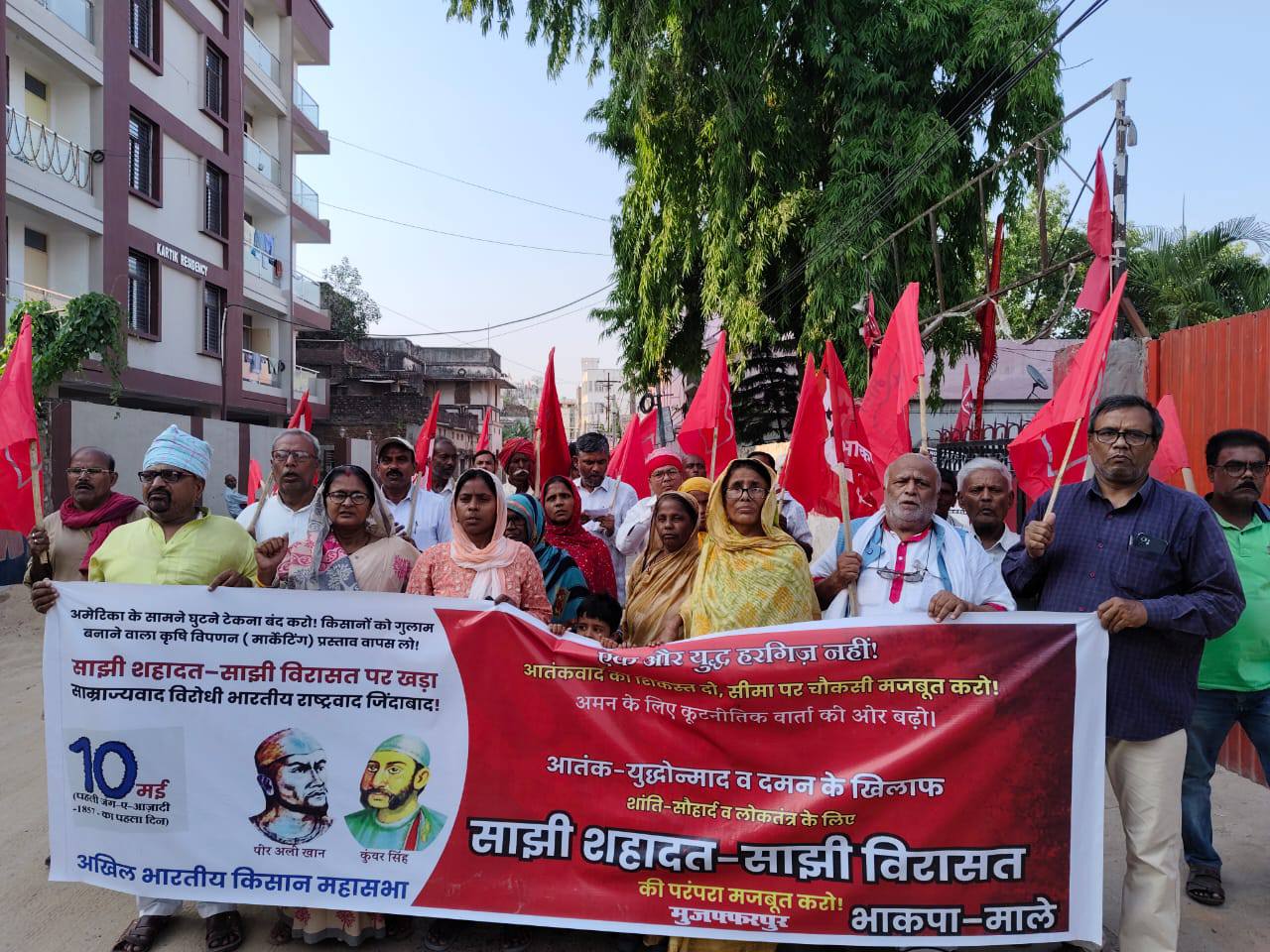
Meena Tiwari expressed deep sorrow over the terrorist attack in Pahalgam, calling for the perpetrators to be harshly punished. However, she cautioned against escalating the situation into a war, highlighting the dangerous consequences of such actions for both India and Pakistan, two nuclear-powered nations.
MLA Gopal Ravidas condemned the attempts to stoke communal tensions in the wake of the Pahalgam incident, criticizing the trolling of the victims’ families and the spreading of war hysteria by the media and political groups. Ravidas called for greater vigilance on the borders and a political solution to the conflict, while condemning the targeting of Muslims in the country.
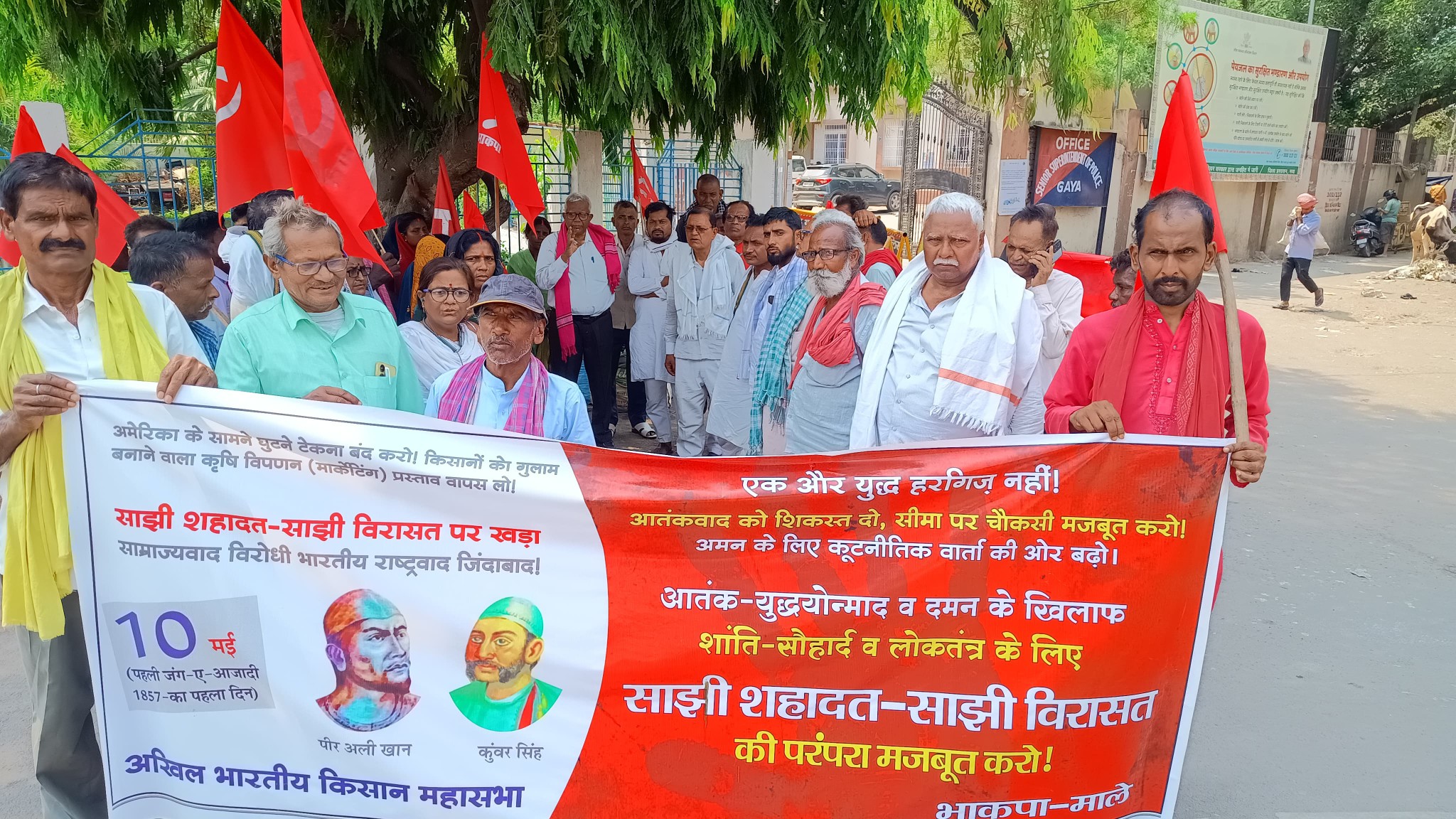
Farmer leader Umesh Singh, speaking on behalf of farmers, voiced concerns over the government’s agricultural policies, likening them to a new form of enslavement for Indian farmers.


